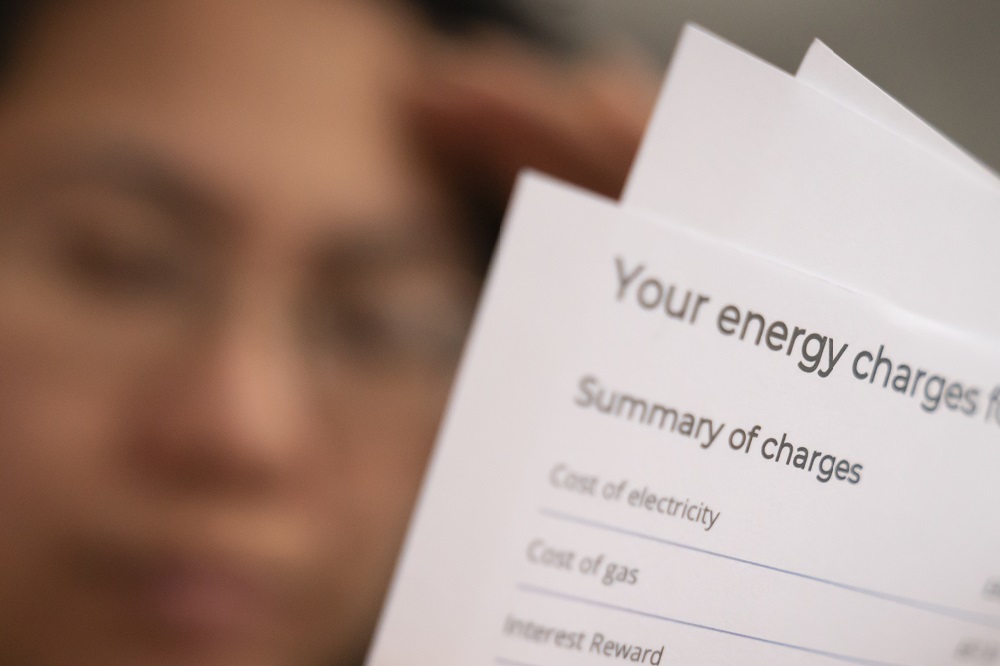Household energy bills to fall to lowest point in two years from April 1

The average household energy bill is to fall to its lowest point in two years from April after Ofgem lowered its price cap in response to wholesale prices.
The regulator announced it is dropping its price cap by 12.3% from the current £1,928 for a typical dual fuel household in England, Scotland and Wales to £1,690, a drop of £238 over the course of a year or around £20 a month.
Invasion
Ofgem said the drop would see energy prices reach their lowest level since Russia’s invasion of Ukraine in February 2022, which caused a spike in an already turbulent wholesale energy market, driving up costs for suppliers and customers.
Big issues
Ofgem chief executive Jonathan Brearley said: “This is good news to see the price cap drop to its lowest level in more than two years – and to see energy bills for the average household drop by £690 since the peak of the crisis – but there are still big issues that we must tackle head-on to ensure we build a system that’s more resilient for the long term and fairer to customers.
“That’s why we are levelising standing charges to end the inequity of people with prepayment meters, many of whom are vulnerable and struggling, being charged more up-front for their energy than other customers.
“We also need to address the risk posed by stubbornly high levels of debt in the system, so we must introduce a temporary payment to help prevent an unsustainable situation leading to higher bills in the future. We’ll be stepping back to look at issues surrounding debt and affordability across market for struggling consumers, which we’ll be announcing soon.
“These steps highlight the limitations of the current system – we can only move costs around – so we welcome news that the Government is opening the conversation on the future of price regulation, seeking views on how standard energy deals can be made more flexible so customers pay less if using electricity when prices are lower.
“But longer term we need to think about what more can be done for those who simply cannot afford to pay their energy bills even as prices fall. As we return to something closer to normality we have an opportunity to reset and reframe the energy market to make sure it’s ready to protect customers if prices rise again.”
Support our Nation today
For the price of a cup of coffee a month you can help us create an independent, not-for-profit, national news service for the people of Wales, by the people of Wales.






Those figures don’t mean a thing , why isn’t the unit and daily charge published
https://www.ofgem.gov.uk/information-consumers/energy-advice-households/get-energy-price-cap-standing-charges-and-unit-rates-region
This piece does not highlight the differences across the UK in standing charge and unit cost of electricity from April onwards, North Wales & merseyside standing charge 67.04 pence per day, unit cost 25.52 pence, South Wales standing charge 63.26 pence per day, unit cost 24.51 pence. Cheapest daily standing charges Eastern 49.92 pence per day, London 40.79 pence per day and cheapest unit price of electricity Yorkshire and Northern 23.36 pence per day. The cost should be the same UK wide with cross subsidy for transmission cost shared not in just a region but across the UK. Otherwise what… Read more »
They even charge VAT on the standing charges and with the standing charges being higher than in England we in North Wales are also paying more VAT. Exploitation is a trait of a colonial power. .
Just the regular tripe. Drop the price in spring when the heating goes off and hike it in the autumn when it comes back on. Do they think we don’t notice?
Still gouged us for money, took out the competitive choices also. The prices will still be much higher and robbed of our electricity resources to fund those to the left in england, who dont do green energy well.